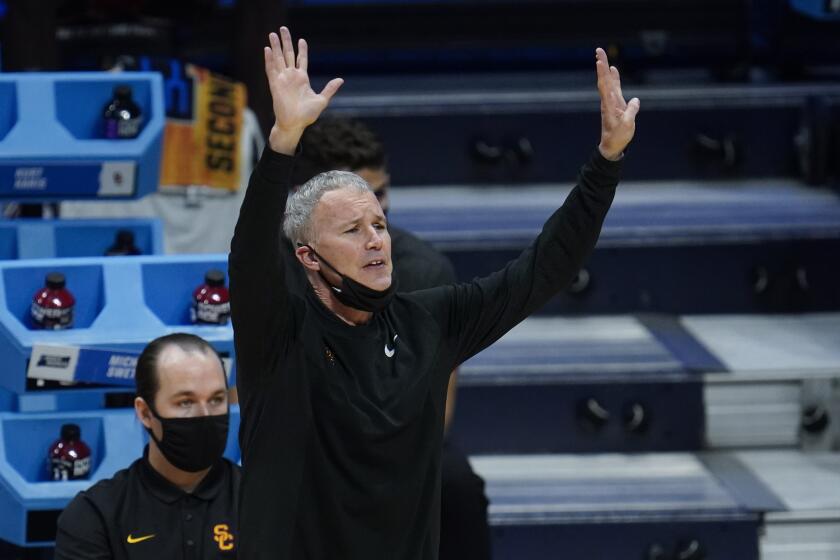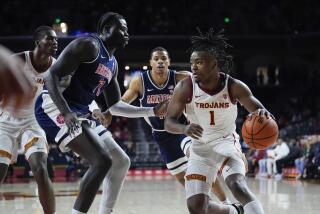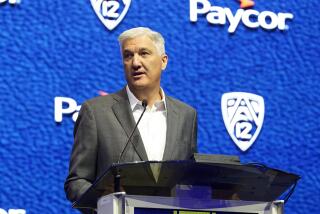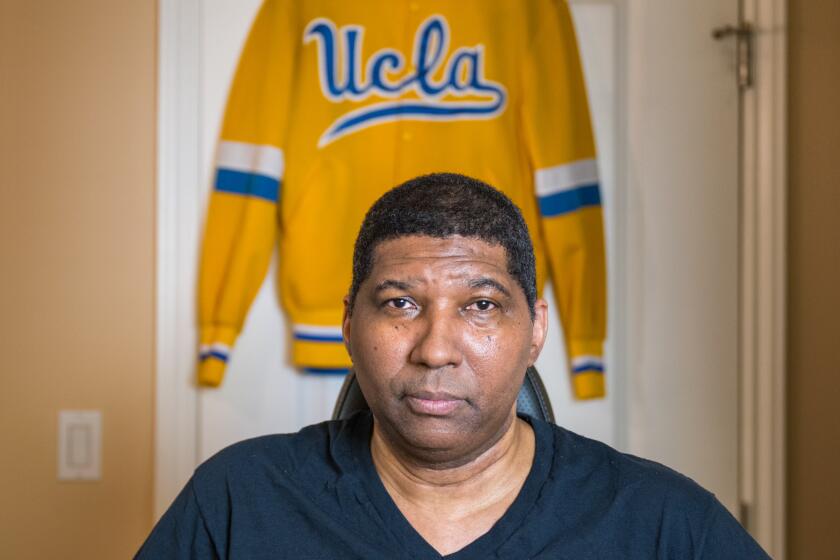Pac-12 disrespected? Yes, but Larry Scott — like Bill Walton — saw a breakout coming
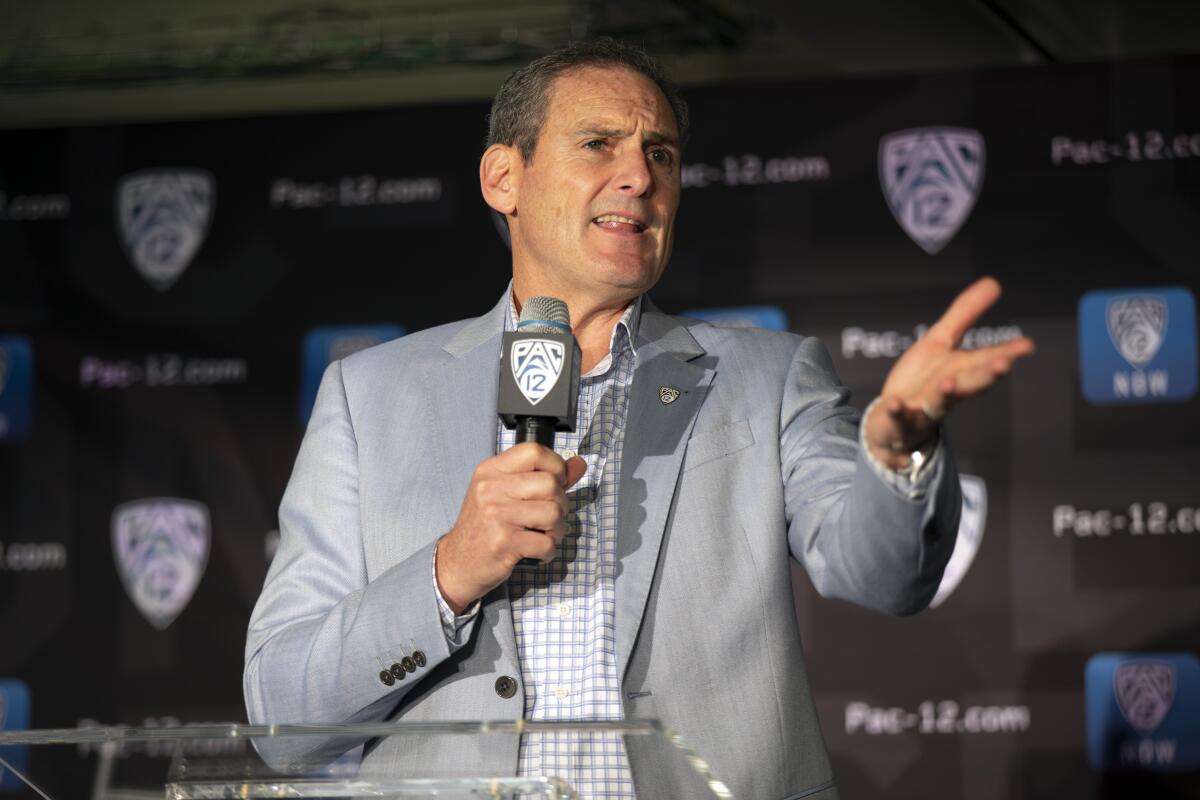
Larry Scott is coming to Indianapolis, where he might be joined — at least virtually — by the only bigger champion of the “Conference of Champions.”
“Somehow,” Scott, the outgoing Pac-12 commissioner, said in a telephone interview Tuesday, “I have a sneaking suspicion that CBS or Turner will get a hold of Bill Walton sometime over this next weekend.”
Walton, the UCLA legend and legendary absurdist broadcaster who picked five Pac-12 teams to make the Final Four, has a few things in common with Scott, who measures every word as if nuclear codes might be divulged if he says the wrong thing.
Both relentlessly tout the strength of a conference given little respect nationally.
Both are wearing the smile of someone with inside information.
“We’ve seen it coming for some time,” Scott said.
Widely disparaged for his handling of a conference lagging in both revenue and prestige, Scott also happens to preside over teams responsible for the best story of the NCAA tournament.
UCLA, USC, Oregon and Oregon State have all advanced to regional semifinals next weekend, making the Pac-12 the first conference to have four teams seeded No. 4 or lower reach that round.
Take that, selection committee.
The Pac-12’s dominance in the NCAA men’s basketball tournament is helping the conference restore its credibility with a national audience.
Oregon was given a No. 7 seed despite winning the conference’s regular-season title and being nationally ranked for much of the season. UCLA was handed a No. 11 seed and shipped to West Lafayette, Ind., for a First Four game despite playing for the conference title on the last weekend of the regular season.
The way the Ducks and Bruins responded, winning every game, has apparently put Scott in a forgiving mood. Rather than slam the selection committee for undervaluing his teams, Scott said he didn’t assign any blame, noting COVID-19 disruptions and truncated nonconference schedules stemming from the pandemic that led to blurry evaluations of teams.
“I think it’s important to show grace to the committee this year,” said Scott, whose conference has twice as many teams left as the far more ballyhooed Atlantic Coast and Southeastern conferences.
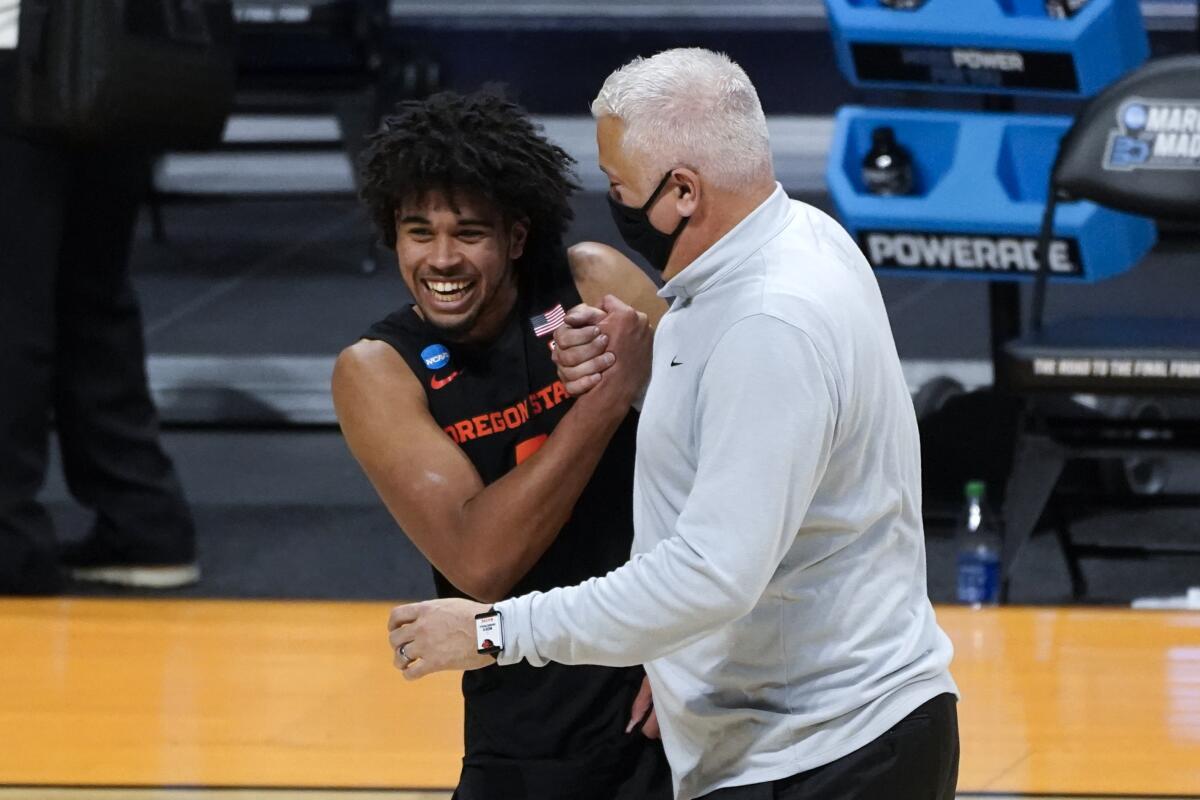
The Pac-12 teams still alive haven’t just won but dominated, prevailing in their most recent games by double digits. USC thwacked Kansas by 34 points, giving the storied Jayhawks their worst loss in NCAA tournament history.
The selection committee not only dissed the Pac-12 in seedings but built in an insurance policy against its supremacy, making USC and Oregon meet in a regional semifinal on Sunday at Bankers Life Fieldhouse.
Scott isn’t mad about that either, even though it will prevent the conference from fulfilling both his and Walton’s dream of an all-Pac-12 Final Four.
“I think if you asked any of my peers across the country, how would you feel about having two teams playing in the Sweet 16, it’s good news,” Scott said. “You have two teams and you have at least one advancing, but certainly also some disappointment because I think both USC and Oregon have the potential to be not just Elite Eight teams but Final Four and beyond the way they’re playing right now and one of them’s not going to have the chance to go on.”
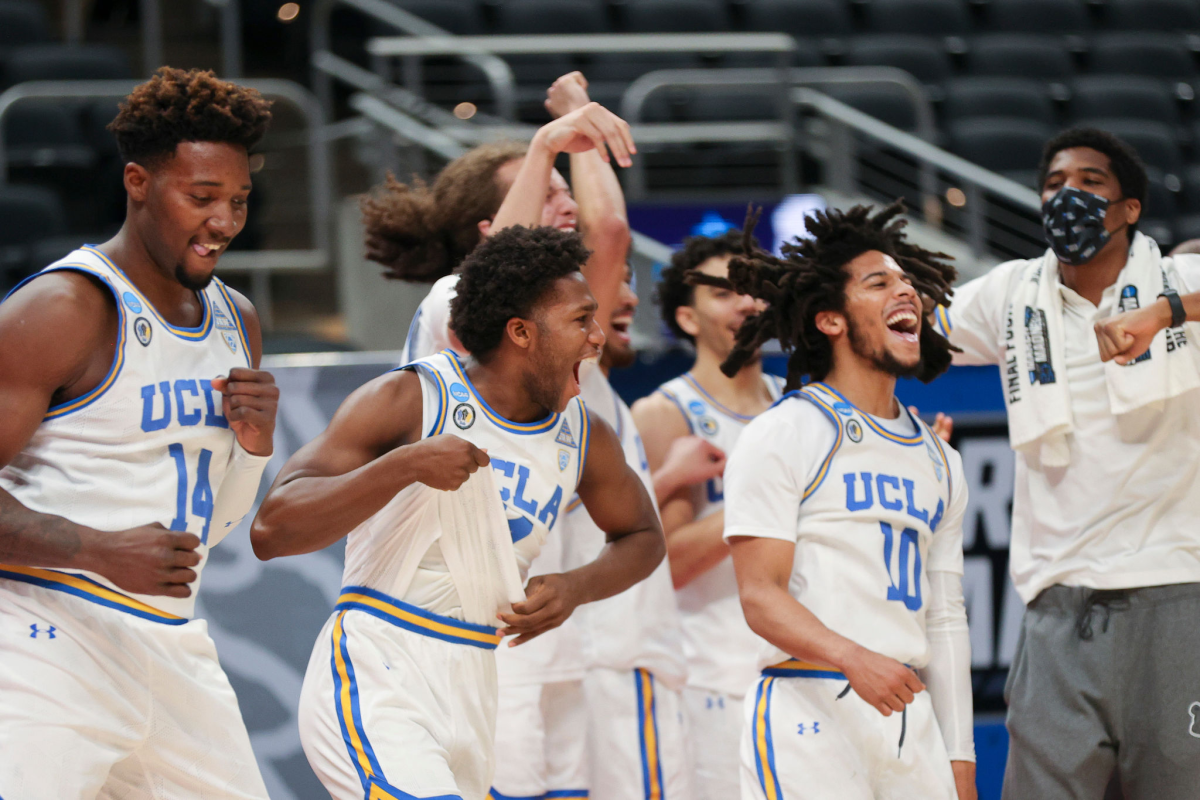
The Pac-12 also has one of the biggest tournament darlings remaining in No. 12 seed Oregon State. Picked to finish last in the conference, the Beavers won the Pac-12 tournament to give the conference a fifth bid and have continued rolling with upsets of Tennessee and Oklahoma State.
Oregon State’s success signaled the depth of the conference, Scott said, and was particularly gratifying given the challenges the Pac-12 faced while being the last major conference to get its players back onto campuses during the pandemic because of stringent local health restrictions.
Pac-12 teams eventually played 116 out of 120 scheduled conference games, but the imbalance in games played among conference contenders prompted USC’s Isaiah Mobley to say that Oregon “stole” the regular-season championship from the Trojans. The Ducks (14-4 in Pac-12 play) won the conference over USC (15-5) because of a better winning percentage.
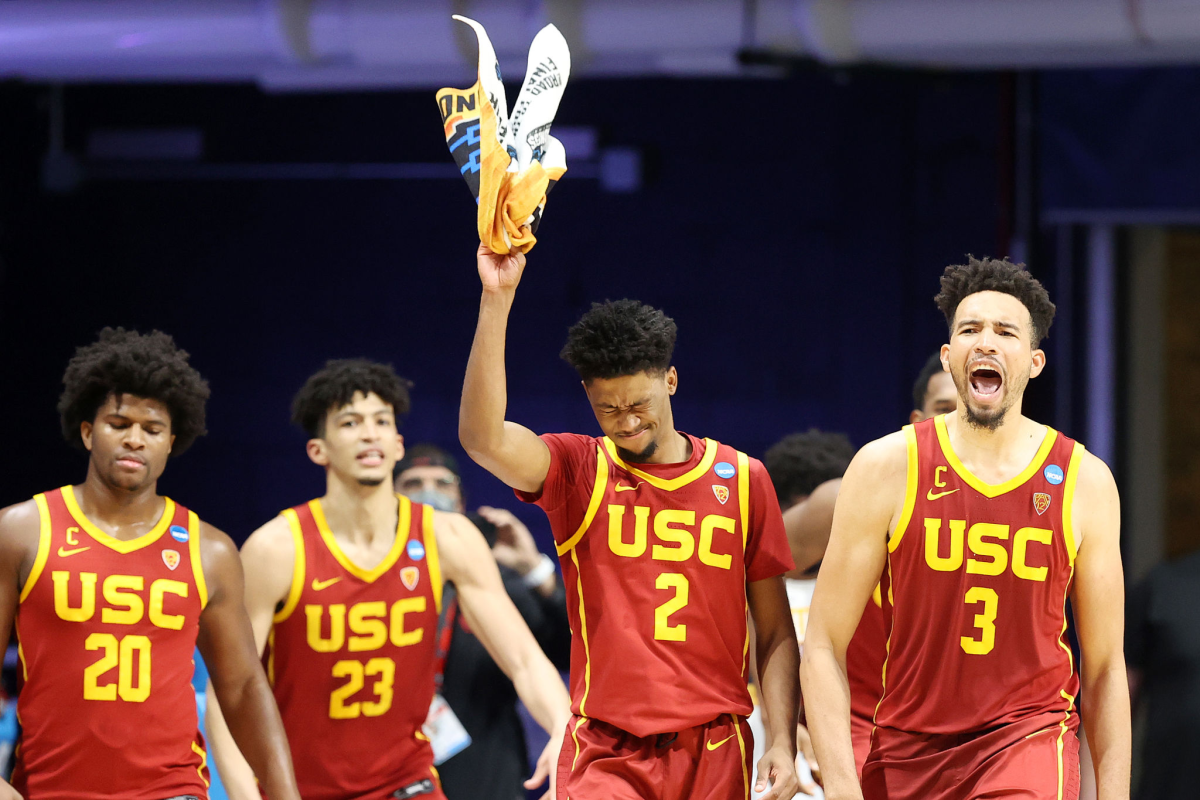
Scott dismissed the notion of any controversy, saying the contingency plans put into action were universally agreed upon.
“Our coaches and our athletic directors worked closely with us to set the rules and the tiebreaking mechanisms were followed,” Scott said. “Everyone was part of those decisions, so there’s no there there.”
An uptick in television ratings and a potential record financial windfall as part of the Pac-12’s revenue-sharing agreement are only part of the allure of the conference’s march through March. Prejudices that worked against the Pac-12 in 2021 might work for them in 2022.
The Trojans’ rout of Kansas was born of the team’s hard work and coach Andy Enfield’s vision, and announced the arrival of a major on-court power.
“I know it’s not supposed to work that way and everyone’s supposed to start with a blank slate,” Scott said, “but there’s an element of human nature and perception and subtle biases like across the time zone and other things. I do think there will be an NCAA tournament bump in perception that carries over and helps the Pac-12 with next year’s selection committee.”
Scott, whose final day as commissioner will be June 30, said he had not decided on any future plans beyond “a good, healthy break.” Rest will be in short supply this weekend, Scott attending Oregon State’s game against fellow Cinderella team Loyola Chicago on Saturday before shuttling between the USC-Oregon and UCLA-Alabama games that are at arenas about 15 minutes apart on Sunday.
Four teams. Three games. Two days.
Nearly a quarter of a century after Arizona won the Pac-12’s last national title, in 1997, maybe the “Conference of Champions” will be on the verge of living up to its name once more.
More to Read
Go beyond the scoreboard
Get the latest on L.A.'s teams in the daily Sports Report newsletter.
You may occasionally receive promotional content from the Los Angeles Times.


